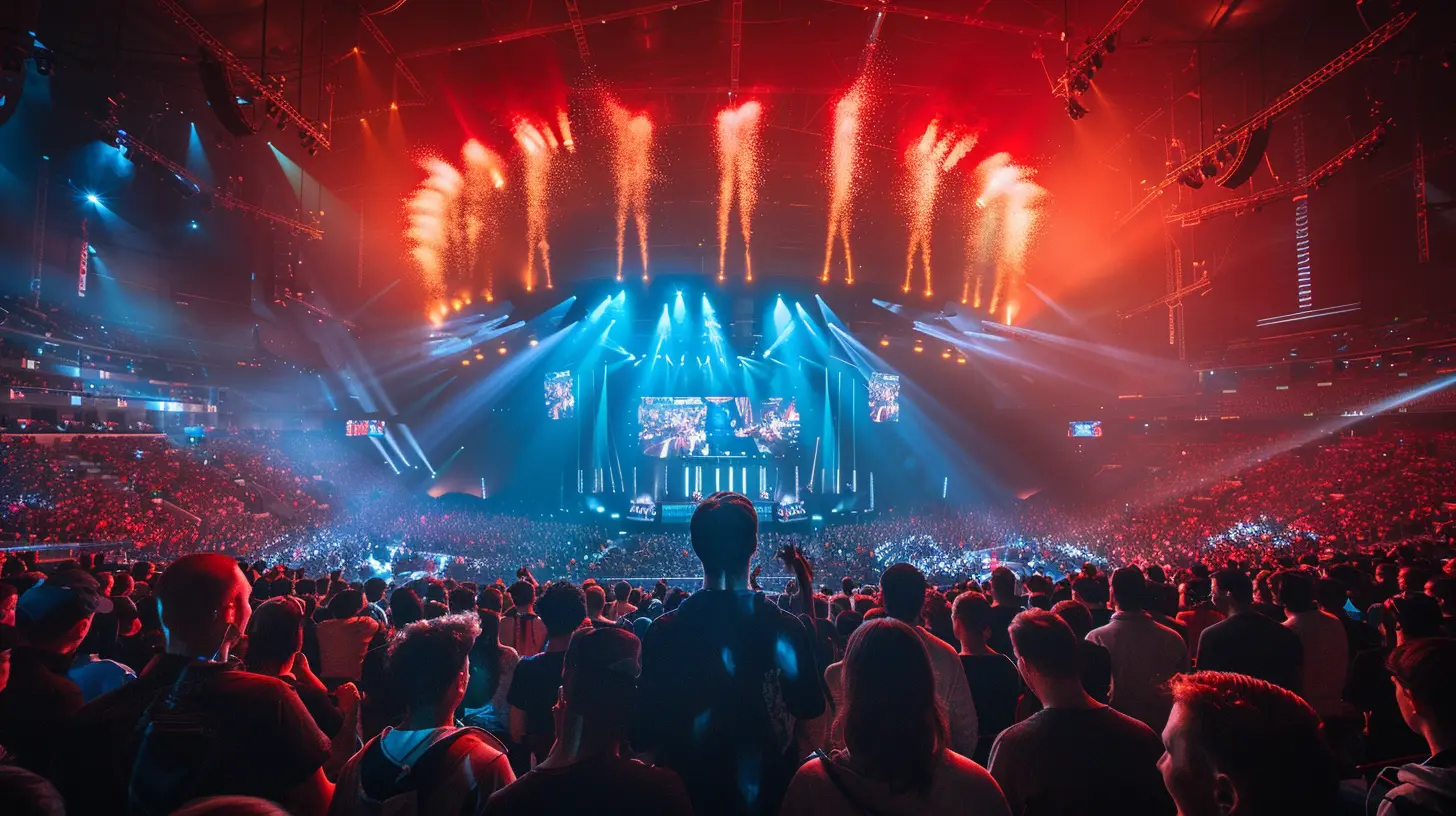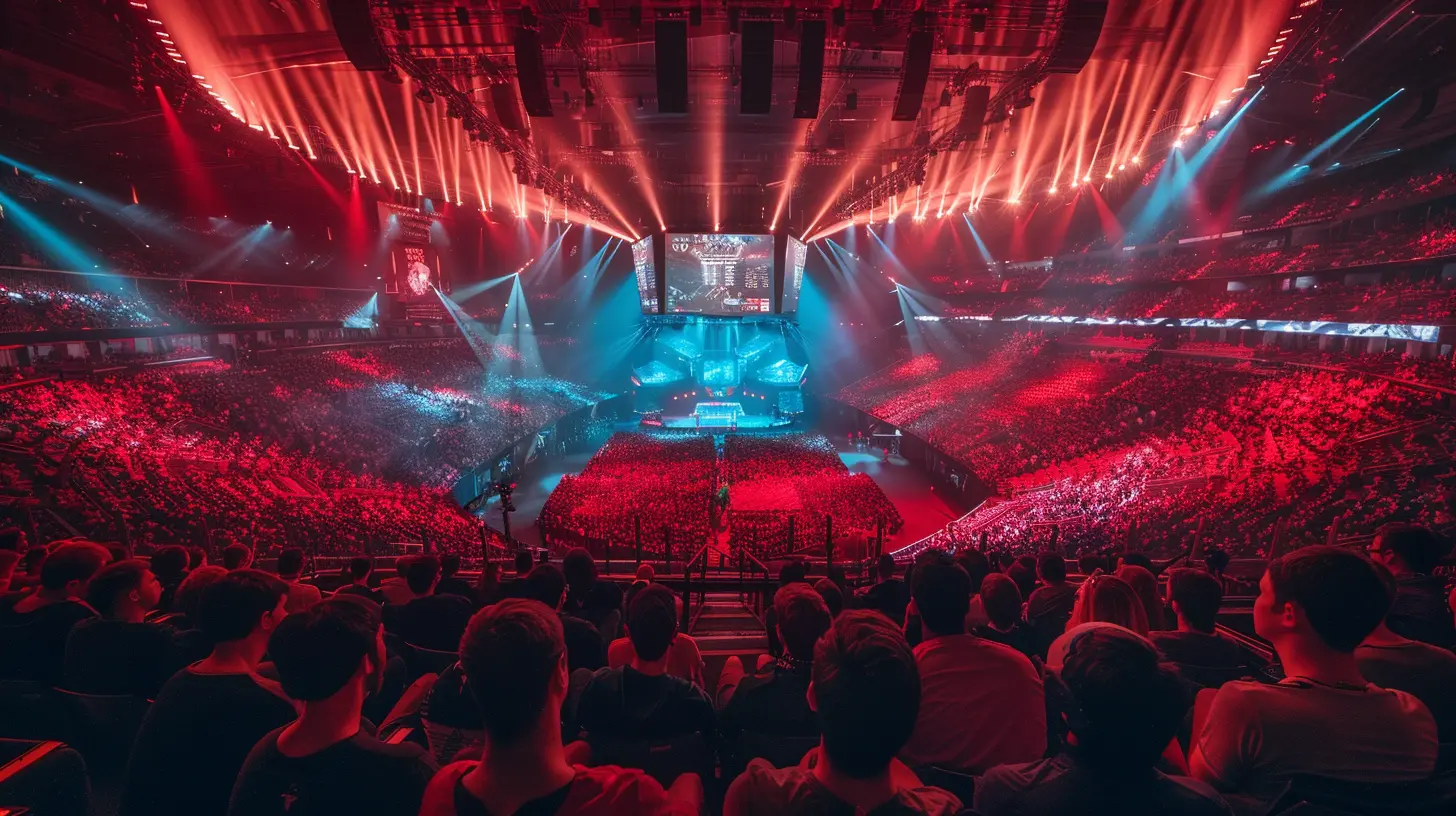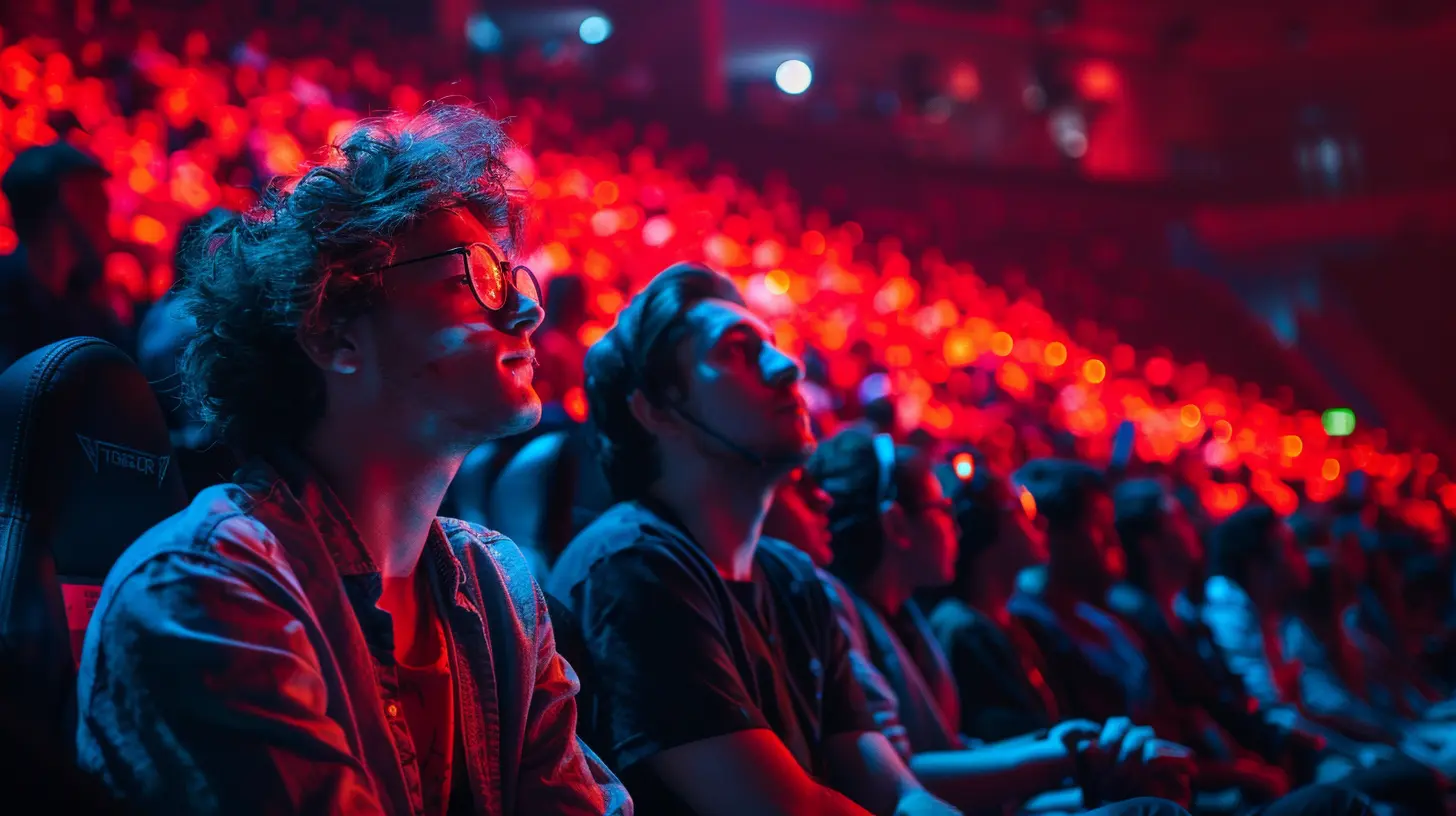The Ethics of Esports: Cheating, Match-Fixing, and Integrity
27 May 2025
Esports has exploded into the mainstream over the past decade, captivating millions of fans worldwide. From competitive video games like League of Legends and Counter-Strike to massive tournaments with prize pools worth millions, the esports scene has become a force to be reckoned with. But as with any rapidly growing industry, issues surrounding ethics, fairness, and integrity have started to surface.
Cheating, match-fixing, and dishonest practices threaten to undermine the integrity of esports, just as they have in traditional sports. These ethical dilemmas raise important questions: How can we ensure fair play? What happens when the line between competition and deception blurs? And most importantly, what are the long-term implications for the future of esports if these issues aren’t addressed?
Let’s dive deep into some of the most pressing ethical concerns in esports and explore why maintaining integrity is crucial for the industry’s continued success.

Cheating in Esports: The Dark Side of Competition
Cheating in esports is not a new problem. Just like any other competitive activity, there will always be individuals who try to find shortcuts to achieve victory. In esports, cheating can take many forms, from using third-party software (often referred to as hacks or cheats) to exploiting in-game mechanics in ways that developers never intended.Common Types of Cheating
1. Aim Hacks and Wallhacks: These are among the most common cheats in first-person shooter (FPS) games like Counter-Strike: Global Offensive or Call of Duty. Aim hacks automatically align the player’s crosshair with the enemy, making it impossible to miss a shot, while wallhacks allow players to see through walls and other obstacles.2. Scripted Macros: In strategy games or games requiring fast reflexes, some players use macros to automate complex actions. While some macros are benign (like assigning a key to perform multiple tasks), others can be exploitative, giving players an unfair advantage.
3. DDoS Attacks: Distributed Denial of Service (DDoS) attacks involve overwhelming a competitor’s internet connection, causing them to lag or get disconnected from the game. This tactic is more sabotage than traditional cheating, but it’s just as disruptive to fair play.
4. Boosting and Smurfing: Boosting occurs when more skilled players help less skilled players rank up, either by playing on their account or carrying them through matches. Smurfing, on the other hand, involves highly skilled players creating new accounts to play against lower-ranked opponents, often ruining the competitive experience for others.
The Impact of Cheating
Cheating undermines the very essence of competitive gaming. Players often dedicate thousands of hours to mastering a game, honing their skills, and learning every nuance of its mechanics. When someone cheats, it devalues this hard work and creates an uneven playing field.Moreover, cheating damages the reputation of esports as a whole. Major scandals can tarnish the legitimacy of entire tournaments, teams, and even games. Fans expect a fair competition, and when they feel that games are rigged or players are cheating, it erodes trust in the system. Just like in traditional sports, if fans lose faith in the integrity of the competition, the entire industry could suffer.

Match-Fixing: When Money Gets in the Way
While cheating can be seen as a player’s attempt to gain an unfair advantage, match-fixing is a much more insidious problem, often involving external incentives like money. Match-fixing occurs when players or teams intentionally lose a match, typically in exchange for bribes or other financial gain.The Temptation of Match-Fixing
Esports has grown incredibly lucrative over the years. Prize pools for some tournaments can reach millions of dollars, and top players can earn substantial salaries through sponsorships and endorsements. However, not every player or team is fortunate enough to play at the highest level, and for those struggling to make a living, match-fixing can seem like an easy way to make some quick cash.Match-fixing often involves betting. Esports betting has become a massive industry, with millions of dollars being wagered on the outcome of matches. This creates an opportunity for unethical individuals to manipulate the system, either by influencing players to throw a game or by placing bets on rigged outcomes.
Famous Match-Fixing Scandals
One of the most infamous match-fixing scandals in esports involved the iBUYPOWER team in Counter-Strike: Global Offensive. In 2014, it was revealed that several players had intentionally lost a match in exchange for skins (virtual items that can be sold for real money) from a betting site. The fallout was massive, with multiple players receiving lifetime bans from competitive play.Another high-profile case took place in the StarCraft II scene in South Korea, where several players, including well-known professionals, were found guilty of match-fixing in exchange for bribes from illegal gambling organizations. These incidents cast a dark shadow over the esports world and highlighted the need for stricter regulation and oversight.
The Consequences of Match-Fixing
Match-fixing is more than just unethical; it’s illegal in many places. In countries where esports betting is heavily regulated, fixing a match can lead to criminal charges, fines, and even jail time. Beyond the legal consequences, players caught match-fixing often face permanent bans from competitive play, effectively ending their careers.But the consequences extend beyond the individual players. Match-fixing scandals damage the credibility of esports as a legitimate competitive industry. Fans, sponsors, and investors may become wary of supporting events if they believe the results are predetermined. It’s a slippery slope that could hinder the growth of esports if left unchecked.

Integrity in Esports: Why It Matters
Maintaining integrity in esports is about more than just preventing cheating and match-fixing. It’s about building trust, fostering a professional environment, and ensuring that the competition is fair for everyone involved.The Role of Developers and Organizers
Game developers and tournament organizers play a critical role in upholding the integrity of esports. It’s up to them to implement anti-cheat systems, enforce rules, and take swift action when violations occur. Many major games, such as Valorant and League of Legends, have dedicated teams working around the clock to detect and prevent cheating.In addition, tournament organizers must ensure that players are held accountable for their actions. This includes strict vetting processes, clear rules against match-fixing, and transparent investigations when allegations arise.
The Importance of Education
While strict enforcement is essential, education also plays a vital role in promoting integrity in esports. Younger players, in particular, may not fully understand the long-term consequences of cheating or match-fixing. By educating players, teams, and fans about the ethical responsibilities involved in competitive gaming, the esports community can create a culture of fair play and respect.Many organizations have started implementing player education programs, teaching them about the risks of cheating, the dangers of gambling, and the importance of maintaining professionalism. This proactive approach helps prevent issues before they arise and fosters a healthier competitive environment.
The Fans' Role in Upholding Integrity
Fans are the lifeblood of esports. Without their passion, enthusiasm, and support, esports wouldn’t be the global phenomenon it is today. But fans also have a responsibility to help maintain the integrity of the scene. This means rejecting toxic behavior, reporting cheating when witnessed, and supporting fair competition.Esports is unique in that it often has a very close relationship between players and fans. Many pro players stream their games, interact with fans on social media, and participate in community events. This direct connection provides fans with the opportunity to promote fairness and hold players accountable for their actions.

The Future of Esports and Ethical Challenges
Esports is still relatively young compared to traditional sports, and as it continues to grow, it will face new ethical challenges. The industry is at a crossroads: it can either allow unethical practices to fester, or it can take a stand and build a foundation of integrity that will ensure its long-term success.Stricter Regulations on the Horizon
As more money flows into the world of esports, we’re likely to see stricter regulations come into play. Governments and regulatory bodies are already paying closer attention to the industry, especially when it comes to betting and match-fixing. This could lead to more oversight, with esports tournaments potentially adopting standards similar to those seen in traditional sports leagues.A Unified Code of Conduct
One potential solution to the ethical challenges in esports is the creation of a unified code of conduct. While some organizations and games have their own rules, there’s no universal standard that applies across all esports. A unified code, enforced by a central governing body, could help establish clear guidelines for players, teams, and organizers, ensuring consistency and fairness across the board.A Bright Future, If We Get It Right
There’s no denying that esports has a bright future ahead. With millions of fans, growing prize pools, and increasing mainstream recognition, the potential is limitless. But to reach its full potential, the industry must confront its ethical challenges head-on. By promoting integrity, transparency, and fairness, esports can continue to thrive and earn the respect it deserves on the global stage.Conclusion
The ethics of esports—whether it’s cheating, match-fixing, or upholding integrity—are critical to the industry's long-term viability. As esports continues to grow, so too will the temptations and opportunities for unethical behavior. But with the right systems in place, we can ensure that esports remains a fair and exciting competition for players and fans alike.Cheating and match-fixing may be dark clouds on the horizon, but they don’t have to overshadow the bright future of esports. By fostering a culture of integrity and fair play, we can protect the heart of what makes esports great—the competition itself.
all images in this post were generated using AI tools
Category:
EsportsAuthor:

Uziel Franco
Discussion
rate this article
3 comments
Roxanne Banks
Oh, the ethics of esports—what a riveting topic! Because who doesn’t love watching pros debate the moral nuances of clicking faster than their opponents? Forget real sports scandals; let’s all gather around and discuss the “integrity” of players who can't even keep their cheat codes a secret!
June 21, 2025 at 4:58 AM

Uziel Franco
Thank you for your comment! While it may seem trivial, the ethics of esports is crucial in ensuring fair play and maintaining trust among players and fans alike.
Nellie Newton
Great article! It's crucial to address the ethics of esports as the industry grows. Upholding integrity is essential for maintaining trust and fairness, ensuring a bright future for competitive gaming. Keep up the important discussion!
June 5, 2025 at 2:55 AM

Uziel Franco
Thank you for your insightful comment! I completely agree that upholding integrity is vital for the future of esports. Let's continue the conversation on this important topic!
Kenzie McNaughton
This article highlights crucial issues in esports, emphasizing the need for robust ethical standards to combat cheating and maintain integrity within competitive gaming.
June 4, 2025 at 3:38 AM

Uziel Franco
Thank you for your insightful comment! I'm glad you found the article's emphasis on ethical standards in esports important for maintaining integrity.



